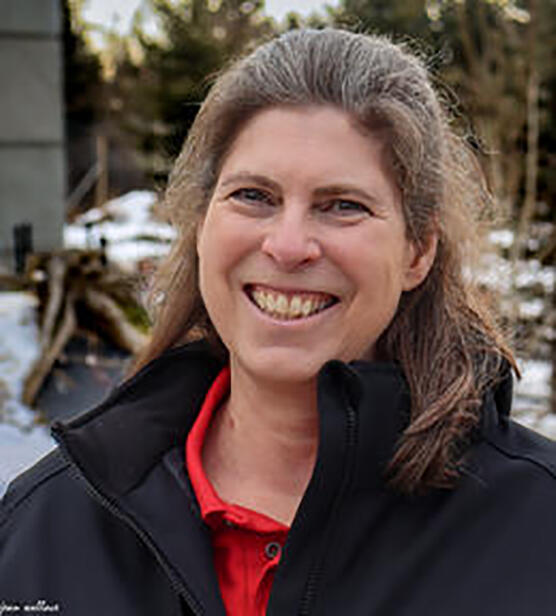Sept. 25, 2023
Empowering change with UCalgary's Mental Wellbeing and Resilience certificate

Community partners are flocking to participate in the University of Calgary’s embedded certificate in Mental Wellbeing and Resilience, a program created in partnership by the Campus Mental Health Strategy and Faculty of Arts.
The innovative wellness solutions generated by students during their coursework and in partnership with the Calgary community has local businesses and organizations keen to get involved in the unique credential and experiential learning opportunity.
Enriching experiential learning
Dr. Melissa Boyce, PhD, a professor (teaching) with the Department of Psychology and one of the creators of the certificate’s curriculum, says she is encouraged when she sees certificate-enrolled undergraduate students effect transformative change.
“That maximum benefit of the certificate happens when students learn by doing.”
Boyce believes experiential-learning opportunities, such as allowing students to problem solve and interact with real issues faced by community members, allows them to deepen their learning by using the tools provided by the certificate.

Melissa Boyce
Boyce was instrumental in compiling the certificate’s roster of courses, launched four years ago, including two courses unique to the credential: Wellbeing (WELL) 300 and 400. WELL 300: Challenges of Intersectionality in Mental Wellbeing, aims to teach students how to evaluate cultural, structural, systemic and socioeconomic issues related to mental health and well-being. WELL 400: Capstone in Mental Wellbeing, builds upon WELL 300 by asking students to engage in applied problem-solving and tackle real-world mental-health issues brought forth by community partners.
The program’s list of partners is a growing one, with plenty of previous participants interested in returning. The certificate has worked with local organizations such as the Calgary Humane Society, the Centre for Suicide Prevention and The City of Calgary. UCalgary groups have also joined in, including the Office of Sustainability, Global Learning Team and Student Wellness Services. Issues range from intrapersonal staff wellness concerns to encouraging Calgarians to use local parks more frequently.
Encouraging personal and academic growth
Instructors of the WELL courses are also pleased by the level of growth and interaction seen from students who have participated in helping solve community issues.
“A lot of [the students] didn’t have any experience interacting with clients in a professional way before the course,” says Dr. Jean Wallace, BA’85, MA’87, PhD, a professor in the Department of Sociology. Wallace has taught WELL 400 for the last four years and will be passing the role on to Brittany Lindsay, BSc’16, BA’16, MSc’20, a doctoral student in the Department of Psychology and Wallace’s teaching assistant.

Jean Wallace
Wallace says the certificate is intentionally open to students in all faculties to allow for a broader team approach working together to solve an issue. “Someone in biology may see things vastly different than someone in English,” she says. “The synergy achieved by putting different people together is much more than the sums of its parts; that transdisciplinary combination brings together very different skill sets.”
Wallace and Boyce both express how pleased they are that the certificate has also helped students deal with their own mental health challenges, many involving managing stress and juggling workloads. Wallace says students keep journals to track their mood, energy level and other pressing issues to be unpacked with coping tools provided throughout the certificate.
Boyce says the certificate’s curriculum will be going through minor updates, such as during Lindsay’s first semester as an instructor and with new community partners coming on board this fall. She says the core purpose of the certificate, however, will remain unchanged.
“When students have the opportunity to use what they’ve learned in an applied context, then they can see the influence they have and the change they can make within the community,” says Boyce, “It empowers them to continue striving for those changes in whatever workplace or community they may end up in.”
The Certificate in Mental Wellbeing and Resilience was recently evaluated by graduate students in the Werklund School of Education and was found to meet all intended learning outcomes. Through both survey and interviews, graduates of the certificate self-reported enhanced awareness of mental health and resilience, improved self care and coping skills, and an increased ability to support others. The certificate was also found to have positively impacted graduates’ academic success, and their personal and professional lives.
Learn more about the certificate by visiting its website.
Faculty or staff member? We encourage sharing this certificate with your students. The program is open to any current undergraduate student and embeds a number of real-world experiences, academic and professional growth to help students thrive during and after their programs.
Are you a UCalgary student? Learn more about enrolling in the certificate here.







